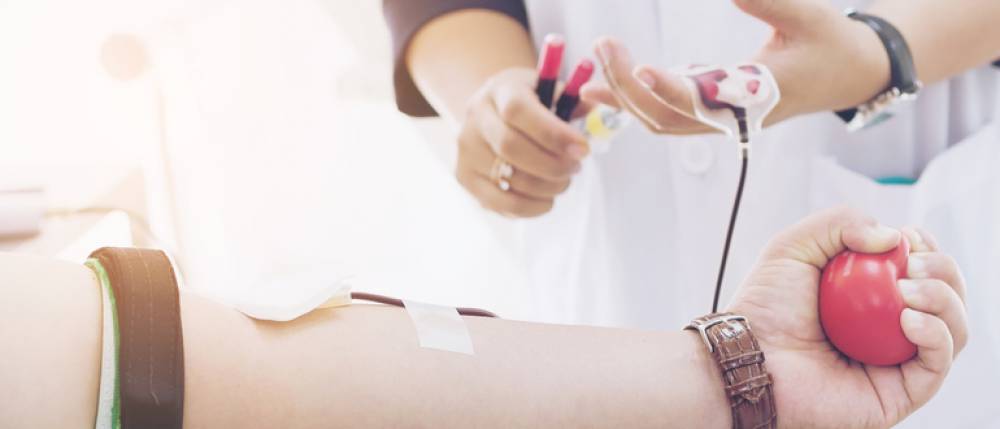Blood donation is one of the simplest yet most impactful ways to save lives. A single donation can help up to three individuals in need, making it an essential part of healthcare systems worldwide. Despite the life-saving potential, many people hesitate to donate due to concerns or misconceptions.
If you’ve ever wondered about the process, safety, and benefits of donating blood, this guide answers all your questions. Let’s break down everything you need to know about blood donation, from preparation and safety to the impact it has on patients in need.

Why Is Blood Donation Important?
Every year, thousands of lives are saved due to generous blood donors. Hospitals rely on a steady supply of blood for emergencies, surgeries, cancer treatments, and chronic illnesses.
According to the American Red Cross, someone in the U.S. needs blood every two seconds. However, only a small percentage of eligible donors give blood regularly. The demand for blood donations continues to grow, making it crucial for more people to step forward and donate.
Frequently Asked Questions About Blood Donation
Will Donating Blood Hurt?
Many people fear that blood donation will be painful. However, the process involves only a quick pinch when the needle is inserted, and most donors report minimal discomfort. If you are sensitive to needles, looking away or listening to music during the procedure can help ease anxiety.
Do I Need to Eat or Drink Anything Before Donating?
Yes! Staying hydrated and eating a balanced meal before donating blood is essential. Here are some key tips:
- Drink plenty of water before and after donating.
- Avoid fatty foods, as they can interfere with blood testing.
- Eat a meal rich in iron, such as spinach, lean meats, beans, and whole grains, to maintain healthy hemoglobin levels.
Will I Lose Too Much Blood?
Not at all. The human body contains about 8 to 12 pints of blood. During a donation, only one pint is taken, which your body can quickly replenish. Plasma is restored within 24 hours, while red blood cells are fully replenished in 4 to 8 weeks.
What Should I Do After Donating Blood?
After donating, it’s important to take some precautions to ensure your body recovers smoothly:
- Rest for at least 15 minutes at the donation center.
- Enjoy light refreshments, such as juice and snacks, provided after donation.
- Avoid lifting heavy objects or engaging in strenuous physical activities for 24 hours.
- Continue to hydrate and eat nutritious meals to help restore energy.
How Often Can I Donate Blood?
According to the American Red Cross, individuals can donate whole blood every 56 days (approximately every two months). Platelet donors can donate every 7 days, up to 24 times a year.
How Does My Blood Help Others?
Each blood donation is crucial for hospitals and emergency care centers. Here are some key facts about how donated blood is used:
- Accident victims, surgery patients, and individuals with chronic illnesses often require blood transfusions.
- Cancer patients undergoing chemotherapy may need blood transfusions to restore healthy blood cell levels.
- People with conditions like sickle cell anemia rely on regular blood transfusions for survival.
- A single car accident victim may need up to 100 units of blood to survive.
Who Can Donate Blood?
Most healthy individuals can donate blood, but general eligibility guidelines include:
- Being at least 17 years old (16 with parental consent in some states).
- Weighing at least 110 pounds.
- Being in good overall health and free of infections or flu-like symptoms.
- Having a hemoglobin level that meets minimum requirements.
Some restrictions may apply based on medical conditions, recent travel, medications, and vaccinations. Check with your local blood bank for specific eligibility criteria.
The Blood Donation Process: What to Expect
Donating blood is a straightforward and safe process that usually takes less than an hour. Here’s a step-by-step guide:
1. Registration
Upon arrival, you’ll provide identification and complete a health questionnaire regarding your medical history and recent activities.
2. Health Screening
A medical professional will check your blood pressure, pulse, temperature, and hemoglobin levels to ensure you are eligible to donate.
3. Blood Donation
The actual donation takes about 10-15 minutes. You will sit comfortably while a sterile needle is used to draw blood from your arm.
4. Recovery & Refreshments
After donating, you’ll relax for 15-30 minutes while enjoying light refreshments. This helps prevent dizziness and ensures a smooth recovery.
Special Blood Donation Campaigns
Many organizations and hospitals run blood donation campaigns to encourage participation. For example, Bayhealth and the Blood Bank of Delmarva have partnered on the O for a Cup of Joe campaign, offering incentives like gift cards and prizes for donors.
Such initiatives help increase awareness and encourage more individuals to donate regularly.
Frequently Asked Questions
1. How long does it take to donate blood?
A typical blood donation session, including registration and recovery, takes about 45-60 minutes.
2. Can I donate blood if I have a tattoo?
Yes! However, you must wait at least 3-12 months, depending on state regulations and whether the tattoo was done at a licensed facility.
3. Can pregnant women donate blood?
No, pregnant women should not donate blood due to the increased blood volume needed to support the baby.
4. Is donating blood safe?
Absolutely. The equipment used is sterile and disposable, and medical professionals ensure donors meet health criteria before donation.
5. How does donating blood affect my body?
Most people experience no negative effects, but some may feel lightheaded for a short time. Staying hydrated and eating well helps prevent this.




